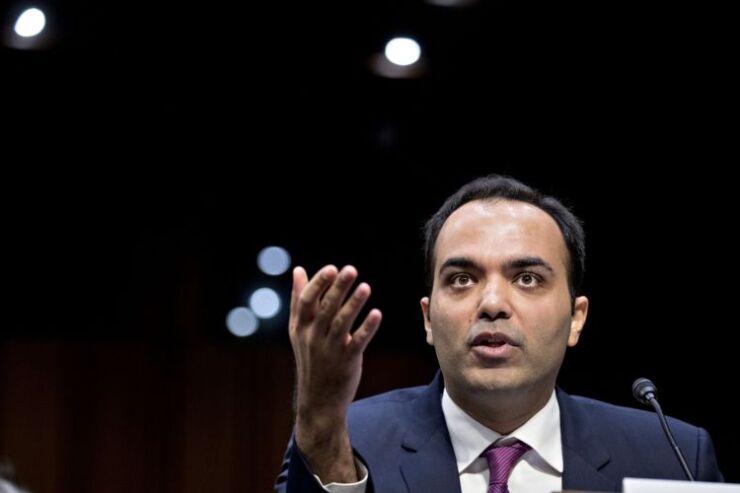The Consumer Financial Protection Bureau’s rulemaking agenda will be dominated in the year ahead by unfinished rules that Congress mandated more than a decade ago by the Dodd-Frank Act.
The CFPB laid out the timeline for five rules in its spring agenda that the bureau expects to complete by May 31, 2023. Two of the rules are considered the most consequential including consumer access to financial records and a small-business data collection rule.
CFPB Director Rohit Chopra has lamented that he inherited rules that previous directors had failed to complete or even put off for years. The CFPB was sued in 2019 by a consumer group for failing to move forward with the small-business lending rule.

“We are heavily focused on implementing long-standing Congressional directives, many of which have gone ignored,” Chopra wrote in a blog post last week.
The Office of Budget and Management posted the CFPB’s spring rulemaking agenda on
Topping the agenda is the release in November of a small business outline for the
The bureau still has to convene a panel in coordination with the Small Business Administration to examine the impact of a proposed rule. The panel’s outline is likely to be close to what the CFPB ultimately proposes, sources said.
Many industry executives had expected a small-business outline would be released early this year and Chopra confirmed in April that the data access rule has taken longer than expected. The rule, more than a decade in the making, was mandated by Section 1033 of the Dodd-Frank Act.
Meanwhile, the CFPB expects to complete its small- business data collection rule in March 2023. The agency released a
The small-business lending rule is being closely watched because the data can be used to identify discrimination. Bank trade groups and some lawmakers have urged the bureau to exempt more community banks and small businesses from the rule.
The CFPB was sued in 2019 by the California Reinvestment Coalition for taking so long to issue the rule, which was mandated by Section 1071 Dodd-Frank.
Though Chopra wrote in the
Chopra also has said he plans to revisit the Credit Card Accountability Responsibility and Disclosure Act, known as the CARD Act, but that 2009 rule also did not make the cut.
The QM rule review is drawing keen interest from mortgage and consumer groups. Some suggest the CFPB may consider inserting fair-lending parameters if it proposes changes to the QM rule.
“It’s still unclear how extensive that review will be,” said Richard Horn, co-managing partner at Garris Horn and a former CFPB senior counsel and special advisor.
Chopra wrote that the CFPB plans to examine aspects of the rule’s “
The blog has led to speculation that Chopra would consider changing the bright-line standards for determining what is a qualified mortgage, though the standard was itself rejiggered under the Trump administration.
A QM loan is currently defined as generally any loan whose annual percentage rate is up to 225 basis points over the average prime offer rate. That standard replaced the 43% debt-to-income ratio for determining a borrower’s ability to repay a loan, which fell by the wayside in favor of what many consider to be a less-stringent pricing mechanism.
“There’s a lot of concern from consumer groups who say that because it’s price-based, you’re basically giving a safe harbor to pricing discrimination,” Horn said. “The CFPB could look at those issues given that fair lending is a significant policy priority for the Biden administration.”
The bureau also expects an interagency rule on automated
Another rule that has languished for years may finally get its day in the sun: a rule governing Property Assessed Clean Energy loans. PACE loans finance home upgrades such as solar panels or cooling and heating systems. They have been deemed risky by the Federal Housing Administration and have created legal troubles for some borrowers, particularly in California. The agency expects to issue that rule by May 2023.
Finally, the CFPB on Thursday issued a






